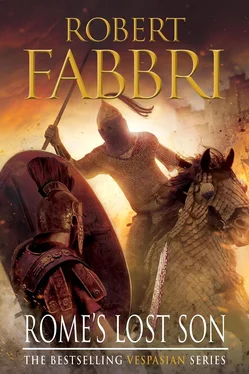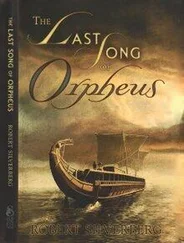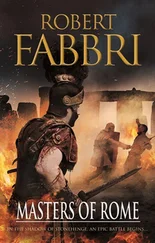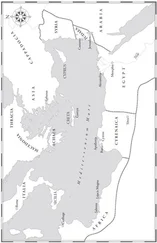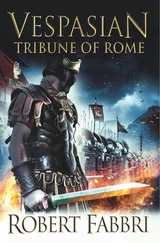Robert Fabbri - Rome's lost son
Здесь есть возможность читать онлайн «Robert Fabbri - Rome's lost son» весь текст электронной книги совершенно бесплатно (целиком полную версию без сокращений). В некоторых случаях можно слушать аудио, скачать через торрент в формате fb2 и присутствует краткое содержание. Год выпуска: 2015, ISBN: 2015, Издательство: Atlantic Books, Жанр: Исторические приключения, на английском языке. Описание произведения, (предисловие) а так же отзывы посетителей доступны на портале библиотеки ЛибКат.
- Название:Rome's lost son
- Автор:
- Издательство:Atlantic Books
- Жанр:
- Год:2015
- ISBN:9780857899668
- Рейтинг книги:5 / 5. Голосов: 1
-
Избранное:Добавить в избранное
- Отзывы:
-
Ваша оценка:
- 100
- 1
- 2
- 3
- 4
- 5
Rome's lost son: краткое содержание, описание и аннотация
Предлагаем к чтению аннотацию, описание, краткое содержание или предисловие (зависит от того, что написал сам автор книги «Rome's lost son»). Если вы не нашли необходимую информацию о книге — напишите в комментариях, мы постараемся отыскать её.
Rome's lost son — читать онлайн бесплатно полную книгу (весь текст) целиком
Ниже представлен текст книги, разбитый по страницам. Система сохранения места последней прочитанной страницы, позволяет с удобством читать онлайн бесплатно книгу «Rome's lost son», без необходимости каждый раз заново искать на чём Вы остановились. Поставьте закладку, и сможете в любой момент перейти на страницу, на которой закончили чтение.
Интервал:
Закладка:
‘Perhaps it’s time to think about retiring and taking life easy; take your patron’s example: he hasn’t made a speech in the Senate for three years now.’
Gaius brushed away a carefully tonged and dyed curl from his face and looked at Vespasian in alarm. ‘Dear boy, you wonder why, when the last speech I was forced to make was reading out a list of all the senators and equites accused of crimes with Messalina and condemned to death. That sort of exposure makes one very conspicuous and that’s how I still feel three years later, having not even countenanced the possibility of holding an opinion, let alone considered expressing one, during all that time.’
‘Well, I’m afraid that you may be dragged out of your self-imposed retirement, Uncle.’
The alarm on Gaius’ face intensified. ‘Whatever for?’
‘Not what but whom, Uncle.’
‘Pallas?’
‘I wish it were but I’m afraid it’s not.’
‘Is that wise?’ Gaius asked after Vespasian had finished recounting his meeting with Agarpetus. ‘If you refuse to meet him, there is still a chance that Pallas may be able to exert some pressure over Agrippina; he might get her to change her mind or at least not oppose you so vehemently just because your boy happens to be her stepson’s best friend. But once you go behind Pallas’ back to Narcissus then all trust and expectation of loyalty is broken and we lose the best ally that this family has in the palace.’
‘But that ally is the lover of my enemy.’
‘And so therefore Pallas has become your enemy whilst Narcissus is Agrippina’s enemy thus making him your friend? Dear boy, think: Pallas has done nothing more than protect his own position by allying himself with Agrippina; he has made the sensible choice seeing as Nero is a far more suitable candidate to succeed Claudius than Britannicus, purely because he’s three years older. Claudius won’t last more than two, perhaps three, more years; do you really think that a boy could rule?’
Vespasian considered the question as the party passed under a colonnade and entered the Forum of Augustus dominated by the vividly painted Temple of Mars Victorious resplendent in deep red and strong, golden yellow. Statues, togate or in military uniform, equally as brightly painted, stood on plinths around the edge of the Forum, their eyes — which exposed Magnus’ false one for the cheap imitation it was — following the public about their business as if the great men commemorated still guided the city. ‘No, Uncle, not without a regent,’ he admitted eventually.
‘And who would that be in Britannicus’ case? His mother, thank the gods, is dead so that leaves his uncle, Corvinus, or Burrus, the prefect of the Praetorian Guard. No one can countenance either option so the weight of opinion is favouring Nero because, since his fourteenth birthday fifteen days ago, he has taken his toga virilis. If Claudius dies tomorrow we have a man to put in his place.’
‘If Nero becomes emperor, Agrippina will see to it that I’ll never hold office again.’
‘Then pull Titus away from Britannicus and the problem is solved.’
‘Is it? Claudius would be offended; what happens if he surprises us all and lives for another ten years?’
It was Gaius’ turn to contemplate the question as they passed through into Caesar’s Forum where the Urban prefect and lesser civic magistrates could be petitioned in the shadow of a great equestrian statue of the one-time dictator himself. ‘That would be unfortunate,’ Gaius conceded, ‘but highly unlikely.’
‘But not impossible. If I’ve earned Agrippina’s enmity, would you deem it wise to try to buy her friendship by earning Claudius’ as well?’
‘If you put it like that, then no.’
‘So what choice do we have other than going to meet with Narcissus tonight?’
Massed cheering broke out as Vespasian’s twelve lictors came out into the Forum Romanum, their appearance announcing the arrival of one of the Consuls at the Senate House to the thousands of citizenry come to witness the greatest day in Rome since the Ovation of Aulus Plautius four years previously. This would be the day when Rome’s great enemy, the chieftain who had led the resistance to her latest conquest, would pay for his temerity and die before the Emperor.
But first, in the absence of his imperial senior colleague who waited at the Praetorian camp, outside the Viminal Gate, it was Vespasian’s task to make the sacrifice and read the auspices; it was important that the gods declare the day auspicious for the business of the city to be carried out. Vespasian had no doubt that it would be so.
Blood spurted in heartbeat bursts into the copper basin beneath the white bullock’s gaping neck. The beast’s eyes barely focused, stunned as it was by the Father of the House’s mallet blow to its forehead made an instant before Vespasian, a fold of his toga covering his head, wielded the knife. Its forelegs and shoulders began to shudder, blood flowing down them. Its tongue lolled from its mouth and it voided its bowels with a steaming splatter as the juddering limbs collapsed, bringing the victim to its knees in front of the Senate House. Standing arrayed on the steps in order of precedence, the five hundred senators currently residing in the city looked on with a solemn dignity as this ancient ceremony was enacted, as of time immemorial, in the very heart of Rome.
Vespasian had stepped back, keeping well away from the various discharges emitting from the bullock — it would be considered a bad omen for the presiding Consul to have his toga sullied and the whole ritual would have to be repeated. The Father of the House supervised the removal of the filled basin by two public slaves just before the animal slumped to the ground, its heartbeat fast diminishing as it made the transition from living flesh to inanimate carcass.
Vespasian repeated the formulaic words over the dead beast, entreating Jupiter Opitmus Maximus’ blessing on his city, just as they had been intoned by incumbents of his office since the founding of the Republic. Four more public slaves rolled the body onto its back and stretched its four limbs in preparation for the belly incision.
The stench of steaming, fresh viscera assaulted Vespasian’s nostrils as his honed blade slit open the gift to Rome’s guardian god; the crowd, packing the Forum and beyond, held its collective breath. After a series of careful, expert incisions Vespasian lifted out the still warm heart and, having presented it to his fellow senators and then to the equites at the front of the huge throng, placed it to sizzle and hiss in the fire burning on Jupiter’s altar before the open wood and iron doors of the Curia.
Two public slaves on either side pulled back the ribcage and Vespasian began the tricky task of detaching the liver without staining his toga. Having presided over many sacrifices he knew that the key to this was steady work; with methodical patience, the organ was soon removed intact and placed on the table next to the altar. Using a cloth put there for the purpose, Vespasian wiped the liver clean of blood and ran his hand over the surface. In an instant he froze and felt his heart attempt to leap into his mouth; his chest heaved with a couple of laboured breaths and his eyes stared fixedly at a blemish, almost purple on the red-brown flesh. But a blemish has no regular or specific shape and that was not true of the mark on the liver’s surface caused, it seemed, by two veins coming almost to the surface together; it had a well-defined form, almost as if it had been branded on, in much the same way as a slave-owner would brand his possession: with a single letter. And it was the letter that had startled him; small but prominent, it was the letter with which his cognomen began. What he saw before him was the letter ‘V’. But more than that, the mark was in almost the exact centre of the liver just to the left of the thin central lobe; in the area that the ancient Etruscan diviners considered sacred to Mars, his guardian god.
Читать дальшеИнтервал:
Закладка:
Похожие книги на «Rome's lost son»
Представляем Вашему вниманию похожие книги на «Rome's lost son» списком для выбора. Мы отобрали схожую по названию и смыслу литературу в надежде предоставить читателям больше вариантов отыскать новые, интересные, ещё непрочитанные произведения.
Обсуждение, отзывы о книге «Rome's lost son» и просто собственные мнения читателей. Оставьте ваши комментарии, напишите, что Вы думаете о произведении, его смысле или главных героях. Укажите что конкретно понравилось, а что нет, и почему Вы так считаете.
